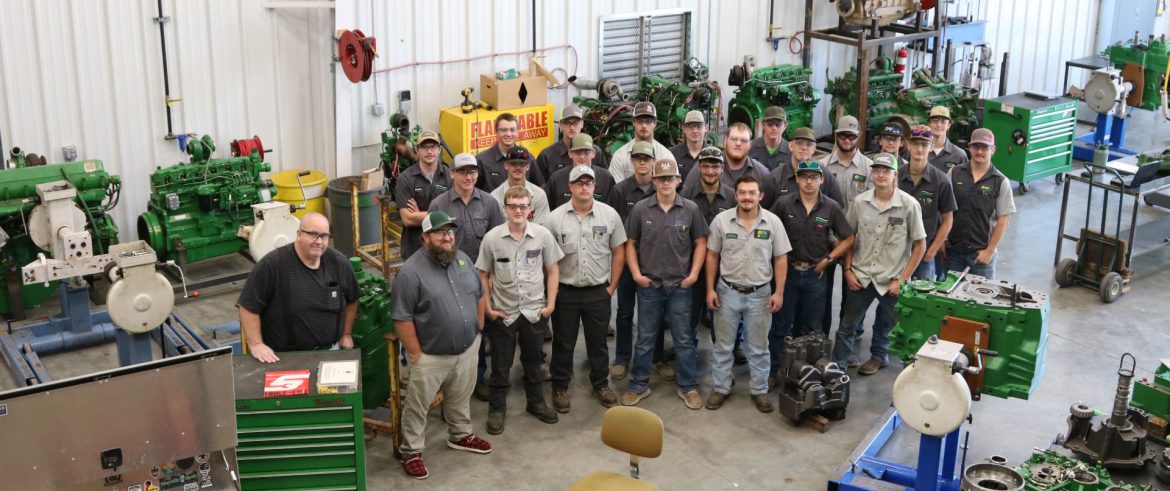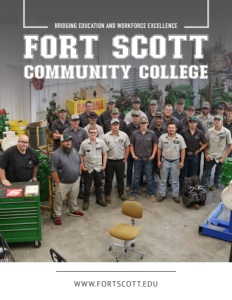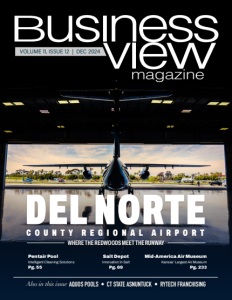Fort Scott Community College
Bridging Education and Workforce Excellence
Expertly utilizing hands-on programs, strong industry partnerships, and strategic plans to equip students for high-demand careers in rural America.
Fort Scott Community College (FSCC) has long been recognized for its accessible and enriching learning environment. Situated in Kansas, FSCC provides an array of programs that cater to traditional and non-traditional students, drawing individuals locally and from across the country. The institution is known for blending quality education with affordability, establishing itself as a significant educational and vocational resource.
Sara Sutton, Interim President, emphasizes this philosophy. “We are very dedicated to providing quality education at a low cost in our community and surrounding areas,” she states, noting that FSCC’s reach extends far beyond regional boundaries. She highlights that the college’s broad appeal stems from a robust mix of core academic courses and specialized vocational and technical programs.
The array of programs at FSCC demonstrates a practical and diverse approach to education. Sutton points out, “Some of our popular programs are the John Deere and our agriculture programs. Those two are unique to our campus.” The curriculum continues beyond there. FSCC also offers a variety of other fields, such as nursing, cosmetology, and even a Harley Davidson program, alongside the essential science, math, and English courses that build a comprehensive educational experience. This mix shows FSCC’s ability to cater to varied interests and career aspirations, creating pathways that resonate with many students.
When it comes to student demographics, the campus thrives with diversity. Dale Griffiths, a John Deere Instructor, provides insight into how FSCC accommodates students at different stages of life and career. “I deal with both traditional right-out-of-high-school students plus several non-traditional students,” he explains. According to him, these non-traditional learners often embark on second career paths, some after years of pursuing different industries. “I’ve actually had non-traditional students making a complete career switch in their 30s, even older,” he shares, highlighting the inclusive and adaptable nature of the program.
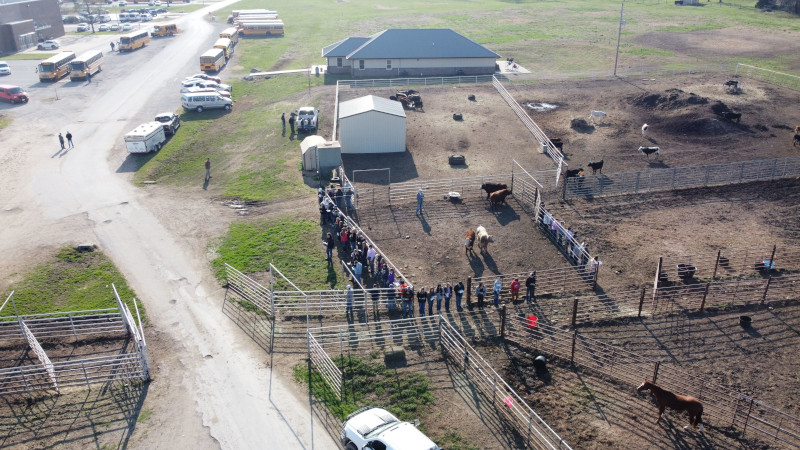
Cutting-edge technology and Specialized Training
Fort Scott Community College’s reputation for progressive, specialized programs is evident in its deep partnership with John Deere and other industry-leading initiatives. FSCC leverages these collaborations to teach students practical, job-ready skills that align with industry standards. Griffiths says, “We’re under the AG umbrella, but we’re firmly on the CTE (Career and Technical Education) and technology side.” This dual focus on agriculture and technology positions FSCC uniquely as one of just 15 AG and turf schools partnered with John Deere nationwide.
Through this partnership, John Deere’s innovations find their way directly into the classroom at FSCC. “We teach things like See & Spray™, which uses AI and cameras to instantaneously distinguish between crops and weeds and control spray nozzles accordingly,” Griffiths explains. Such lessons are embedded in the college’s Ag Management Systems (AMS) class, where students master field computers, auto-steer technology, and AI-driven crop management. In addition to spraying technology, the AMS class introduces students to other advanced equipment, such as the Combine Advisor, an integrated system that adjusts the combine for optimal performance in real time, analyzing inputs with infrared cameras.
While coding isn’t a primary part of the coursework, electrical skills, and critical thinking are heavily emphasized. “We’re focused on teaching electrical at a very high level,” Griffiths says. The program encourages the analytical skills needed to diagnose complex issues, ensuring that graduates are not just mechanically inclined but intellectually equipped for the nuanced demands of modern agricultural technology. “Critical thinking is what tends to shine in this,” Griffiths adds.
Shaping Agricultural Leaders and Skilled Trades Experts
Fort Scott Community College continues to make waves with its multifaceted agriculture programs and growing skilled trades offerings. Conner Vernon, the Agriculture Instructor and Livestock Judging Coach, highlights the unique nature of FSCC’s agriculture curriculum. “Our program is very unique. We have competitive teams in livestock judging, meat judging, and even a rodeo team,” he says. Beyond these competitive aspects, the college focuses on two primary pathways: the farm and ranch certificate and the Associate of Applied Science (AAS) degree. Both options provide students with evolving courses tailored to market demands and real-world applications.
Customizing education to student backgrounds and goals is at the heart of the FSCC experience. “I try to cater it to the students we have in class,” Vernon says. Vernon shapes his instruction by understanding each student’s background—whether they come from a family operation or have never set foot on a farm—to suit their needs. He shares, “If a kid has never been in actual agriculture, we teach them the new foundations and principles so they can join in, whether through partnerships or visits with businesses.”
This personalized approach extends to FSCC’s courses, such as soil class. “We look at organic and conventional farming, analyzing the pros and cons of both,” Vernon explains. He emphasizes that students learn to weigh what will work best for their operations, considering location and financial situations. “Whether you’re in New Mexico, Pennsylvania, or the Flint Hills of Kansas, we cater to what students are trying to emphasize,” he adds. With many students bringing backgrounds in beef cattle and equine management, the coursework covers practical skills like administering shots and recognizing healthy livestock, paired with the reasoning behind these actions to enable smart, future-focused decision-making.
FSCC’s goal of nurturing well-rounded agriculturalists is clear. “The ag industry is forever evolving, and with the average age of a farmer getting pretty high, we want this newer generation to take over family farms or start their own operations,” Vernon states. The goal is to prepare students for large-scale endeavors like managing a 4,000-head feedlot and smaller, more personal agricultural pursuits, even in urban settings. “We correlate these teachings so students understand animal husbandry, water management, soil conservation—basic yet essential skills that may have been lost over generations.”
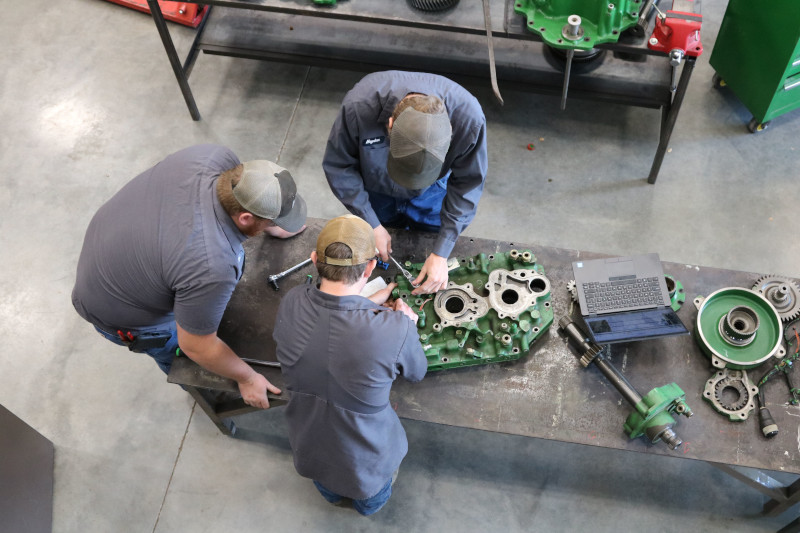
Investing in Infrastructure and Strengthening Community Ties
Fort Scott Community College’s focus on benefiting rural communities and ensuring their access to higher education and vocational training has positioned the institution as an essential bridge between ambitious students and practical learning opportunities. Sutton shares, “Although we have locations in other counties, we don’t own those buildings; we partner with non-profit organizations that see a need for educating rural communities.”
Through these partnerships, the college facilitates essential programs, including construction trades and heavy equipment operations. “Generally, our partner picks up the bills on the building, and we provide more opportunities to rural students who might not have a community college within their reach,” Sutton adds. The college supplies specialized equipment, a significant investment that local public school districts could not otherwise afford, allowing students to earn credentials such as the OSHA 10 or Heavy Equipment Operator certificate.
FSCC has made considerable investments on the main campus to enhance the student experience. “We’ve done updates in our athletic department, with new turf on baseball and softball fields and a state-of-the-art weight room,” Sutton notes. The facilities also boast indoor batting cages and upgraded workout spaces. Recent renovations include a remodeled cafeteria and student union, creating inviting environments encouraging social and academic engagement. Sutton highlights, “Within the last five years, we added a beautiful commons area to our agriculture department, complete with a kitchen and spaces for students to work or relax.”
Griffiths reflects on the significant milestones within FSCC’s specialized programs. “Seven years ago, we moved the John Deere Tech program back to our main campus, which included building a new shop equipped with cranes and other resources,” he shares. This move revitalized the college’s welding program, which shares the same cutting-edge facility. The John Deere Tech Center is a comprehensive learning environment featuring computer labs and common areas where students can study and collaborate.
Sutton acknowledges John Deere’s involvement, noting, “Without John Deere’s help in facilitating curriculum and being as hands-on as they are, we wouldn’t be able to have our program.” Griffiths emphasizes the deep involvement of the dealer network across Kansas, Missouri, Oklahoma, and Arkansas. “Every dealer location actively takes part in our advisory boards, helping steer curriculum and recruit students,” he says. This network ensures FSCC remains relevant and responsive to industry needs, providing resources and opportunities that benefit students and the college.
Future Growth and Priorities
Fort Scott Community College is always looking ahead, aiming to expand its offerings and better serve its students and the surrounding communities. Sutton outlines FSCC’s ambitions for the coming months: “We are looking at some new high-wage, high-demand offerings that we currently don’t offer.” The college is exploring introducing a plumbing program, an electrical program, and possibly a lineman training program—fields identified as crucial due to the growing demand in the region. These additions would further enhance FSCC’s diverse curriculum, which spans agriculture, technical education, skilled trades, and nursing.
The strategic move aligns with FSCC’s growing career and technical education emphasis. “We’re seeing a bigger increase in our career technical education programs,” Sutton notes. This trend matches the region’s appetite for practical training that leads directly to employment. By adding programs that train future electricians, plumbers, and utility line workers, FSCC addresses local labor shortages and supports economic development.
Sutton emphasizes the broader goal behind these initiatives: “We want to continue to form partnerships and programs that help all of our regional citizens get into the workforce.” The college’s connections with industry leaders and community partners are the bedrock for these plans. Whether it’s the involvement of established names like John Deere or support from local businesses and alumni, FSCC’s ability to harness these relationships ensures its new programs are theoretical and deeply tied to real-world needs.
As FSCC explores these potential offerings, the college remains true to its foundational mission: equipping students with skills that lead to tangible career opportunities. “We’re hoping we can facilitate those as soon as we can,” Sutton adds, projecting a sense of urgency and excitement that resonates with the institution’s proactive approach and that sets it up to continue being a vital educational and vocational hub for the region, driving success for students and the community alike.
AT A GLANCE
Fort Scott Community College
What: A forward-thinking community college offering diverse educational and technical programs
Where: Fort Scott, Kansas
Website: https://fortscott.edu/
PREFERRED VENDORS
WoodRiver Energy, LLC – www.woodriverenergy.com
Navigating the Energy World
When Winter Storm Uri struck the U.S. in February 2021, it triggered a severe energy crisis. The freezing temperatures hampered natural gas production while millions scrambled to heat homes, businesses, and public facilities, driving up demand. The result? Natural gas prices skyrocketed by 200-300 times their average levels, leaving consumers with devastating natural gas bills.
Since then, severe weather events like Winter Storm Elliot in 2022 and Winter Storm Finn in 2024 have continued to impact consumers, particularly in the Midwest and Rockies, further highlighting the vulnerability of our energy infrastructure.
These storms underscore the importance of selecting the right natural gas supplier for your budget and risk tolerance, particularly for institutions like community colleges that serve as critical hubs for education and local communities. For these institutions, budget protection and stability are key.
At WoodRiver Energy, we provide full requirements contracts that lock in 100 percent of usage into a selected program. Unlike partial-requirement options, which lock in only a portion of energy needs and leave the rest vulnerable to daily market swings, full-requirements contracts ensure 100% of usage is secured.
